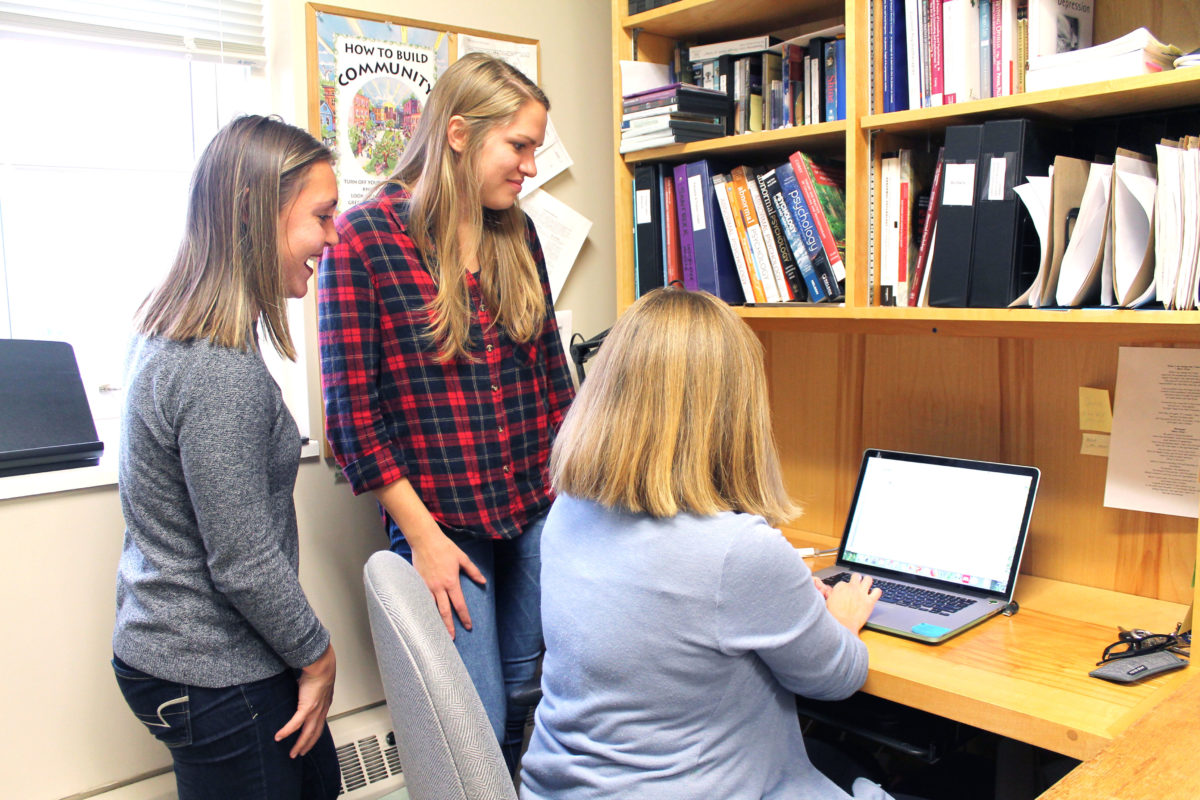St. Thomas University psychology professor Michelle Lafrance, along with fourth-year psychology students Elizabeth Dreise and Moira Kinney are looking at the difficulties impacting New Brunswick caregivers.
Their research aims to create a better understanding of what caregivers go through and improve policies in the province.
“We are together doing research on informal caregivers. So spouses, daughters, neighbours, people who are in the community supporting an older adult to enable them to age in place, to allow them to live in their home,” said Lafrance.
“Those changes cannot be made purely at the level of policymakers. They have to be made by listening to the people who are experiencing this.”
So far the group has conducted 27 interviews, but they hope to get 40.
The most common caregivers are daughters looking after their parents or spouses doing the same for their partners. More than 50 per cent of those interviewed are caring for family members with cognitive decline or dementia.
Lafrance began researching after she noticed the level of stress caregivers are under when focusing on others more than themselves.
“For me, the impetus to this came years ago, because I had done a lot of research on women’s experiences of recovery from depression and the taxing role of caregiving played a significant role in many women’s experiences of depression,” she said.
The group is also collaborating with University of New Brunswick psychology professor Carmen Poulin and Laurentian University sociology professor Lynne Gouliquer as co-investigators.
Lafrance credits much of the study to the STU Senate Research Committee. They have an annual competition for a major research grant. Lafrance received $6,000 from the competition, which helped her start the project in 2016.

Her research also received funding through an Insight Development Grant of $59,769 from the Social Sciences and Humanities Research Council of Canada.
“It’s very hard to kind of switch directions in research and I had been doing a lot of mental health stuff and this is a very new area for me. So it gave me the research support to start a completely new area of inquiry,” said Lafrance.
The grant also allowed Lafrance to hire Dreise, who began work in early 2017. Her work over the summer was funded by the New Brunswick Health Research Foundation. Kinney began in May 2018 through summer job funding.
Both Dreise and Kinney are doing their honours thesis on the research.
Dreise’s thesis explores caregivers’ difficulties supplying transportation.
“I’m looking at driving and when the individual that [caregivers] are caring for is not able to drive anymore – because of cognitive decline – and how the caregivers navigate that,” said Dreise.
Kinney’s thesis focuses on resources available for caregivers when they need to help their loved ones.
“A lot of people don’t know where to start, where to look for this information and it’s a challenge in itself just knowing where to go,” said Kinney.
The research has made the group realize how difficult caring for a loved one can be.
“It’s just really hard. They’re both [Dreise and Kinney] encountering just how hard it is for these people to negotiate and manage this. It’s not easy,” Lafrance said.
In addition to their interviews with caregivers, the group hopes to speak with 10 to 15 professionals and policymakers about driving safety and accessibility to information resources.
Lafrance hopes this research will make caregivers’ needs known and provide them with more support.
“That’s my goal, to kind of amplify the voices of caregivers so that we get their struggles on record and adapt what we’re doing to hopefully better meet their needs.”

